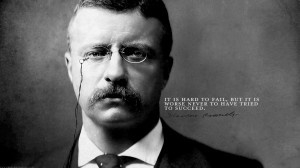The Atlantic is a magazine with which I have a turbulent relationship, or at least an up-and-down one. I have subscribed periodically, excited by its cover stories: long, smart, profound discussions of issues that shake and shape the world. And then I get bogged down, behind, and occasionally bored by its tendency to obsess about the American political system. It’s a great magazine, but I sometimes get lost in its density and its preoccupations. And the articles are too long for reading on the commode.
I’m about to enter another period in which, subscription abandoned, I will be free to wander retroactively through issues that still have weight and relevance for me, months or even years after urgency has passed. But I probably won’t. It’s one of those promises I guiltily make in the full knowledge that I won’t follow through. There’s so much to read, and grim obligation is such a poor prod to do so.
The Atlantic’s 150th anniversary issue came out in November. (I’m already reading it!) Referring back to a promise its founders made in 1857, this issue returns to what might be called the magazine’s central focus with a cover story on “The American Idea”. The editors invited dozens of American thinkers and commentators and builders to submit a short essay on the general theme, and they are brief and bracing pieces. There are the expected paeans to American freedom, energy, innovation, and destiny. (Early report: nobody writes more blandly on these things than the politicians, although Arnold Schwarzenegger does the unheard of, actually admitting a mistaken and overly partisan approach. God help me, but the guy is interesting!) But the voices don’t sing from the same all-approving hymnbook, and it’s a great reminder that, whatever you might think of the United States and its dominant position in world affairs, its leaders of thought are bright, contrary, and pretty darned brave. Here’s a taste of a few of them.
The writer Azar Nafisi (Reading Lolita in Tehran) uses that ever-influential American text, Huckleberry Finn, to argue that the strength of the American idea is that Americans regularly depart – “light out for the territory,” as Huck insists he must – from the most rigidly conformist expressions of it. While there’s a lot of fear-induced group-think going on in American life, there are also many who will challenge orthodoxy and “hope to be a little less ‘sivilized’”.
As an example of this, the columnist George Will begins by questioning the very concept of the American idea, arguing that the country gets in trouble whenever it thinks of itself as having one central concept, and therefore one predominant purpose. Because, he says, the lightly sleeping “missionary impulse” that is never far from American consciousness can take over; the current mania for bringing American-style democracy to the benighted world comes to mind. So listen to this: Will calls the greatest challenge to America “the false idea that American patriotism is inextricably bound up with the notion that being a normal nation is somehow beneath America’s dignity”. (Read that sentence again!)
Another broadside against the perverse elements of the belief in American “exceptionalism” comes from the wildly prolific novelist and commentator Joyce Carol Oates. “How heartily sick the world has grown,” she begins her mini-essay, “of the American idea!” It has become “a cruel joke, a blustery and bellicose body-builder luridly bulked up on steroids…” (Wonder what she thinks of The Arnold?) She questions the overweening pride implicit in the whole notion of an American idea: “Our unexamined belief in American exceptionalism…makes our imperialism altruistic, our plundering of the world’s resources a healthy exercise of capitalism…[and makes it seem that our] political goals are always idealistic, while the goals of other nations are transparently opportunistic”. And she heaps scorn on the resolute and wilful ignorance of the motto, “my country, right or wrong”. Oh, and full disclosure: I may have been also swayed by her persuasive statement of the “higher degree of civilization embodied by Canada”. Wouldn’t you be?
There are many notable submissions. Bernard Lewis, a scholar and British World War II vet, observes that Americans are “unteachable”, insisting on doing things their own stubborn and sometimes ignorant way, but that they are also quick to recognize and remedy their errors. The wonderful David Foster Wallace makes a plea for modern society’s least-invoked virtue – sacrifice – arguing in effect that Americans by quiet consensus feel that 40,000 annual traffic deaths is an acceptable price to pay for the freedom of driving; therefore, why should a markedly lower toll of “terror” deaths lead to such mad curtailment of liberties as we continue to see? (Much of his mini-essay is in the form of questions, yet its own stand is clear.) Historian and poet Robert Conquest speaks of the “lethal certainties” – the worst of Marxism, or Naziism, or jihadism – that have faced Americans, and their own need to retain “a sense of proportion” and avoid the pitfalls of being cocksure. Columnist Arianna Huffington harks back to the Declaration of Independence and its famous credo of “life, liberty and pursuit of happiness”, suggesting that the Founders didn’t have in mind “the blessed-out buzz induced by drugs or shopping sprees”, but rather “the happiness that comes from feeling good by doing good.” Talk of sacrifice AND service?? What decade are we in? Nice to hear. So much else, too, that is good and thought-provoking. Or irritating.
Two back-to-back submissions startle by their utterly opposite views of U.S. problems. Sam Harris, fervent anti-religionist and author of The End of Faith and Letter to a Christian Nation, bemoans Christian extremism and its “pious phantasmagoria” of distracting concerns: school prayer, gay marriage, etc. He longs for the boost to reason that America could give to the world if it wasn’t so hobbled by an ignorant Christian majority. Meanwhile, the essay immediately following, by the Christian pastor Tim LaHaye (he of the Left Behind series of novels about Rapture and “end times”, where the faithful do mighty tricks and the faithless burn), laments the godlessness of American life and the secret machinations of the “scientific humanists” who have undermined the “country more blessed by God than any other nation in history”. Shudder. Sam Harris blusters and exaggerates, but I must say that the writing of LaHaye – no doubt more circumspect and gentle than usual given the audience he’s writing to here – makes me wish for a sickening instant that I wasn’t a person of faith. (Perverting Groucho Marx for my own purposes, I’m inclined to ask, “Why would I want to belong to a club that would have him as a member?”)
But I am. (And I don’t ask.) While the American Bahá’í community has been regularly warned about the materialistic excesses, the substandard morals and the racist poisons infecting their country, the United States is also regarded as having achieved an exemplary level of civic cohesion. The States, in other words, through trial and many errors, have actually been something of a beacon to the world by remaining united. It is ironic that the government of these United States has, in recent years especially, been so dismissive and even distrustful of the United Nations and its work to extend such civic harmony to the world level.
I recommend the November issue of The Atlantic, still likely available on newsstands, for anyone wishing to better understand this powerful and complex nation. Particularly if you tend toward reflexive anti-Americanism, you will find much to convince you that Americans do not speak with one under-educated voice. To brand those damned Americans for whatever hubris, intrusion or exceptionalism most irritate you is akin to absurd comments like typical male or just like a woman or [insert ethnic or religious minority here] are all alike. It just ain’t so. There’s a lot of brilliant, contrary and incisive commentary here. The essays, though a few are longer, are mainly about 300 words long. (A quarter the size of the woolly beast you just fleeced.) Together, they make for an interesting tapestry of American thought, a sort of U.S. Studies 101 if you’re inclined to education.



